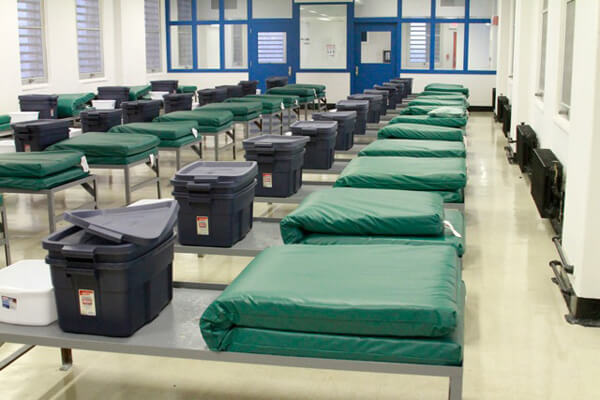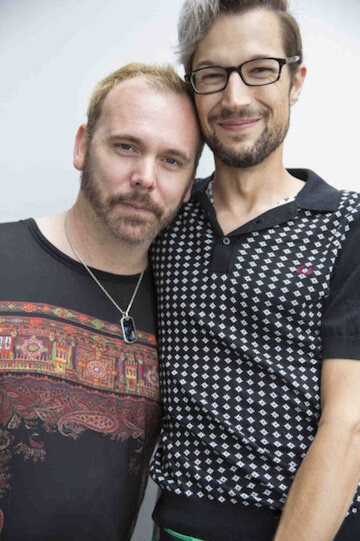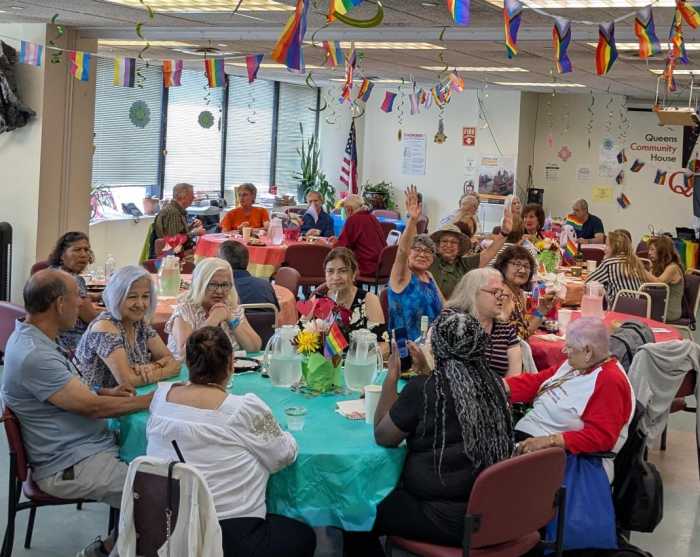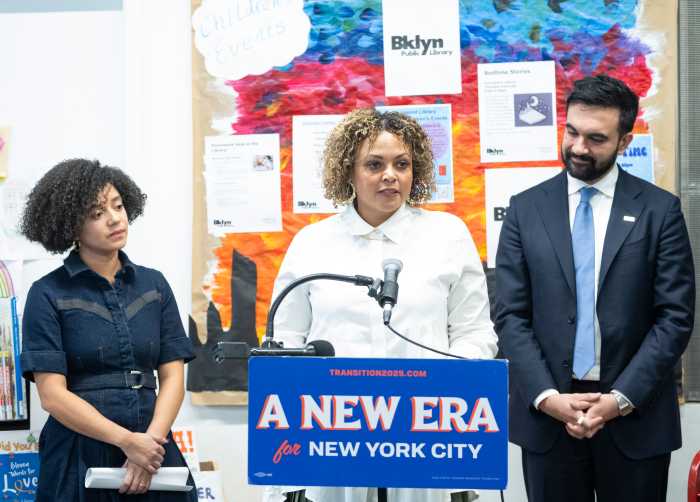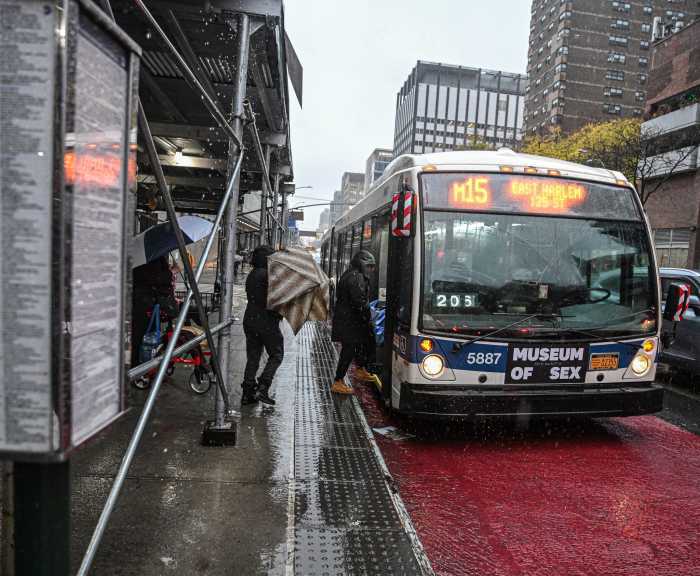The new housing unit for transgender women at Rikers Island. | NEW YORK CITY DEPARTMENT OF CORRECTION
On Rikers Island, man-to-woman transgender inmates who have not undergone genital surgery will now have the option of not being housed with the general population of men, but to be detained in a new transgender unit opening this week in the New York City jail’s oldest building.
Gay City News was given an exclusive tour of the 30-bed facility on the sixth floor of the jail’s North Infirmary Command (though the unit is not part of the hospital) and spoke with the administrators and officers who will operate it and later with the advocates who pressed for its creation.
The unit consists of a large dormitory-style room and a smaller room with round tables and fixed seats where inmates can watch one TV or play games as well as eat. They will also have access to recreation in the yard and physical and mental health services nearby. While there is no forgetting or compensating for the fact that this is a place of confinement, the rooms have sweeping views of Manhattan on one side and the Long Island Sound on the other.
City's largest jail aims to accommodate trans women who have not undergone genital surgery; state prisons lag on progress
The opening comes at a time when Rikers –– a complex that houses more than 11,000 inmates overall –– is in the news for a history of unsafe conditions, including brutality at the hands of officers, for a variety of inmates.
Erik Berliner, deputy commissioner for strategic planning and programs at the Department of Correction (DOC), said, “We are finding ways to keep people safe, giving them a place where they don’t have to worry about being themselves. This is a place that can be sensitive to them. It is the right time for it. We are reassessing everything about safety and security.”
One of the key principles of the unit is that it is completely voluntary. Berliner said that transgender women inmates who have not undergone genital surgery were surveyed and about half said that they would prefer to be assigned in the new unit and the other half would choose to remain among the male inmates. State law requires that inmates with male genitalia not be placed among the female inmate population, which is why these transgender women are currently housed among male inmates.
Advocates have been pressing for the transgender unit for years, getting nowhere under the Bloomberg administration that shut down a gay unit in 2006.
John Boston, director of the Prisoners’ Rights Project at the Legal Aid Society, said, “It’s a great step forward that will make life in jail noticeably less miserable for a group of people that have often been terribly mistreated.”
He added, “We still have not managed to get the directive governing the unit’s operations out of them. We made comments back in August, but there were endless delays on finalizing it.”
More than a hundred staff at the jail were given training on transgender issues by two of the advocates for the facility, Chase Strangio, himself transgender, a staff attorney for the American Civil Liberties Union, and Alisha Williams, director of prisoners’ legal services at the Sylvia Rivera Law Project.
Strangio said the training sessions were “an incredible opportunity to have advocates on issues impacting trans people in confinement settings to be the ones training uniformed correctional staff. The trainings represented a point of potential progress insofar as they show a commitment by leadership at DOC on meaningful training on trans issues. But like with all training, the culture change that is going to need to happen is going to take much more than a two-hour training could ever accomplish. So much will depend on the governing document and our hope is that the directive will permit all trans people who wish to access the unit to do so. One of the reasons why this model is important is that it is a voluntary unit. It is not one they are forced to enter. From an advocate’s perspective, that’s the only way a unit like this could work.”
Berliner said that one of the trainers referred to staff as “guards” at one point, a word he said is “one of the worst for people who want to be called ‘officers.’” But the officers were able to see, in that moment, how their concern for what they are called was equivalent to the concerns transgender people have about how they are addressed.
Captain James Thomas said, “We learned about the law and what they’re entitled to, how to talk to them and be sensitive to them. The hardest thing is pronouns.”
“I appreciate that the Department of Correction provided an opportunity for advocates like myself to have input on draft policy and offer training,” said Williams. “In an ideal world we wouldn’t have prisons.”
Williams said that while the city is making this advance, “we tried to work with the State Department of Corrections and they don’t have transparency. They claim they do training, but they don’t have advocates like myself or Chase at the table.” She said the state does do training under the Prison Rape Elimination Act, “but they devote just a few minutes to LGBT issues versus” the two-hour transgender training at Rikers.
“People get excited about policy changes,” Williams said. “This is a safer space within a really violent system. But we can’t get complacent. Keep talking to people who get incarcerated. Communicate with them and make sure they are safe.”
Mariah Lopez, executive director of STARR, a transgender activist group, is a former Rikers inmate and a longtime advocate for this unit. “Like most programs that are new and innovative,” she said, “it is going to take some time to work out the kinks. But I’m optimistic. This is an opportunity to work with law enforcement for a change. I’m elated. What is remarkable about this opportunity is that it is about more than just getting trans people jailed better but also connecting them to services. The deputy commissioner said he will do what he can to connect people to non-profits. It will save the city money in recidivism.”
Lopez adeed, “Getting arrested shouldn’t mean getting stripped out of your gender.”
“We’re taking a big first step,” Berliner said, “and we will continue to work on it and ask for feedback from staff, inmates, and advocates.”

